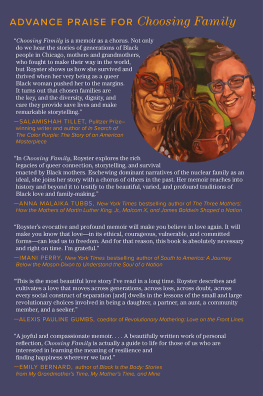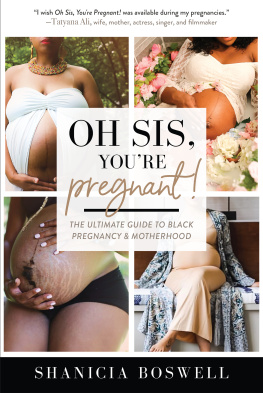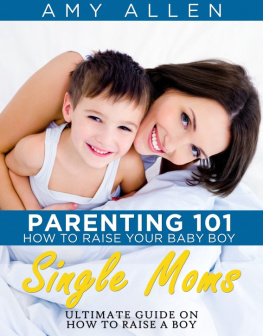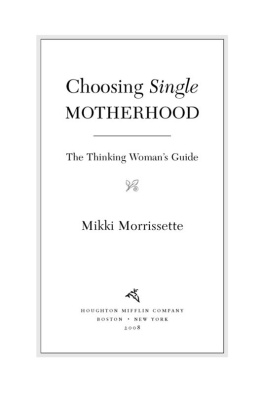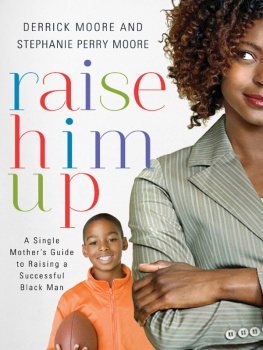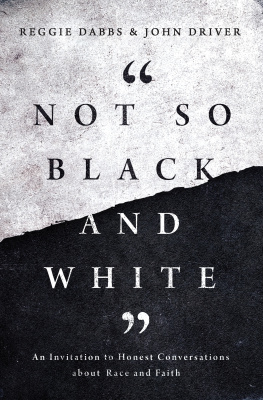Sourcebooks and the colophon are registered trademarks of Sourcebooks, Inc.
All rights reserved. No part of this book may be reproduced in any form or by any electronic or mechanical means including information storage and retrieval systemsexcept in the case of brief quotations embodied in critical articles or reviewswithout permission in writing from its publisher, Sourcebooks.
This publication is designed to provide accurate and authoritative information in regard to the subject matter covered. It is sold with the understanding that the publisher is not engaged in rendering legal, accounting, or other professional service. If legal advice or other expert assistance is required, the services of a competent professional person should be sought. From a Declaration of Principles Jointly Adopted by a Committee of the American Bar Association and a Committee of Publishers and Associations
This book is a memoir. It reflects the authors present recollections of experiences over a period of time. Some names and characteristics have been changed, some events have been compressed, and some dialogue has been re-created.
All brand names and product names used in this book are trademarks, registered trademarks, or trade names of their respective holders. Sourcebooks is not associated with any product or vendor in this book.
P.O. Box 4410, Naperville, Illinois 60567-4410
Library of Congress Cataloging-in-Publication data is on file with the publisher.
Ann, Henry, Grandma, and Pop, for setting the bar really high.
Prologue
Come on, August, grab your pullover. I waited for my little boy at our front door.
Where are we going, Mama? August asked, dragging his black Gap sweatshirt behind him across the hardwood floors.
To a rally at the park, I answered, sliding the hoodie over his tall, slender body. Handsome and inquisitive at only five years old, August already had the makings of a scientist/cowboy/race car driver, and I was proud of how far he had come.
In a past life, before we became a family, August had lived in two foster homes. Meanwhile, I earned a license to foster/adopt from the Los Angeles Department of Children and Family Services. After months of certification and waiting, I became a mother to a six-month-old Black baby boy, and my life changed forever.
Augusts addition to the neighborhood made us one of five Black families who dwelled between La Cienega and San Vicente Boulevard. August and I loved our little slice of heavenfilled with Mexican Jews, nonpracticing Jews, old people, Koreans, young white families, and a formerly handsome playboy, who drove a red convertible and didnt date anyone older than twenty-fivejust outside of the Beverly Hills hub. La Cienega Park, with its green play structures, sandbox, clean bathrooms, and recreation center, was a block away. Every day, elderly Jewish men sat at concrete benches, speaking Hebrew, feeding pigeons, and playing chess. Mothers nursed their babies or worked out with trainers, and little kids played king of the hill. On Wednesdays, the park was filled with divorced and coparenting dads and their children. The rumor was that Wednesday was designated court-ordered visitation day. Every now and then, a B-list celebrity from The Fast and the Furious would be on dad duty.
Before I adopted August, I landed in Beverly Hills in June 2006 on a fluke. I had lived in the San Fernando Valley for seven years when the condominium I was previously renting was sold. I was in denial about moving and waited until the last possible moment to find a place, when I stumbled upon a one-bedroom apartment on the eastern border of Beverly Hills. There were no fancy shops near me, and if I wanted to stargaze or stroll down Rodeo Drive, Id have to drive west on Wilshire Boulevard for eight minutes. It wasnt the most upscale apartment building either, and even my grandmother made sure to emphasize to her sister and church members that we didnt really live in Beverly Hills, but it was home.
As we made our way down the dusty steps and onto the street, August asked, Whats a rally?
It where lots of people who like the same things come together and talk or sing. Earlier that morning, I had googled the Black Lives Matter website to see when they were coming to Los Angeles. As I scrolled down the page, I discovered a rally that night. I was frankly surprised a rally would be held in Beverly Hills. Of course, there was wealth in the area, but this was not a fund-raiser. It was an event that was designed to bring white people, far removed from blight, gangs, and poverty, out into the street in support of Black lives. It was one thing to send money or sit at home and hand-wring. It was another to publicly cry foul at a system that routinely oppressed Black people. Thats what I had done by adopting August, and that was the reason I took him out that night.
Like a party? His eyes lit up.
My child was not even in kindergarten and already a party animal. Um, not really. It was already seven oclock. Ordinarily, August would be getting into a warm, sudsy bath at this time of the evening. After he played with his boats and fish, hed be ready for a cup of milk. Then August, who liked brushing his teeth, would delay bedtime by splashing water all over the sink. While I cleaned up, he would choose three or four books from his overflowing red-and-blue bookcase and wait for me in his twin bed. Tonight, I was disrupting his routine for one reason. I needed to connect with other mothers of Black boys.
Why are we going?
Good question. My heart echoed President Obamas sentiment that Trayvons murder was a national tragedy . This was one of the few moments in history that the death of a Black boy was elevated to a national tragedy. I took a beat to consider how to broach the subject. If I gave my sensitive child too much information, he would feel bad without understanding why. If I gave too few details, he would miss the importance of the moment. I did not want to frighten him, but lying wasnt the answer either.
Why, Mama? he asked again.
Because a few weeks ago, a boy named Trayvon Martin was killed walking home, and we want to show our support.
I spoke calmly, hoping to give August the impression that despite using the words boy and killed , my son was safe. I pretended we were just taking a casual stroll to the park, though the circumstances were far from normal. Except, I quickly realized, they were normal. This was my new normal. Most Blacks were taught that life was tenuous and this reality was just part of living in America. Before becoming a mother, I was detached from what that really meant. I lived in an affluent neighborhood and ran with a highly educated, well-traveled crowd. I thought my privilege shielded me from ugly truths about the actual worth of a Black life. Trayvon Martins murder opened my eyes to the new reality Black mothers faced every day. There was no guarantee that our boys would arrive home safely from school or back from the store after purchasing Skittles.
Trayvons death grounded my parenting priorities. I went from trying to understand the difference between the Montessori and the Reggio Emilia approaches to education, to understanding that I was part of a club whose sole membership requirement was being the mother of a Black boy, and feeling the weight of that fear keenly for the first time. Suddenly, I was scared for August, who shared a birthday with Dr. Martin Luther King Jr. I wept inside because there would be times in Augusts life when trouble would find him, even if he was just out minding his own business, all because his racial classification was Black. Trayvons death gave me another thing to worry about: life. How could I protect my son? How could I give him the best life, one where he enjoyed a childhood of trains and dinosaurs, not rallies for the gone-too-soon? In my new skin as mother of a Black boy, I had to think through how we would navigate a world set up to challenge his very existence. The task was daunting and made me feel powerless and small.


